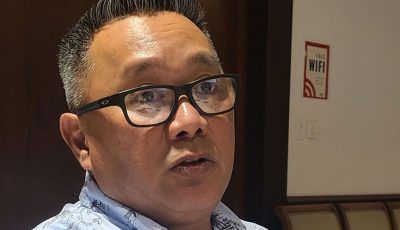HANMI fine with 14-day stay for Chinese tourists
Says new regs no effect as majority of Chinese tourists stay only 3-5 days
Saying it has no effect on hotels, the Hotel Association of the Northern Mariana Islands is fine with the U.S. Department of Homeland Security’s new regulation that pared down from 45 days to just 14 days the period that Chinese tourists can visit the Commonwealth under parole authority.
Typically, a regular Chinese tourist stays anywhere from just three to five days in the CNMI, according to HANMI chair Gloria Cavanagh yesterday.
In contrast, Cavanagh said, Russian tourists used to stay for three weeks or a month, or 45 days, whichever was permitted them.
“So we are…okay with this [14 days]…,” she said.
Cavanagh believes that DHS or U.S. Customs and Border Protection is targeting certain types of tourists that might threaten the CNMI’s parole program and that would be birth tourism.
“The only time you [are going to] stay 45 days is you are here to do exactly that, which is to have a child,” she said.
Cavanagh said giving birth here is not necessarily against the law. However, when the CBP officer asks these tourists why they are here, their response is usually a lie. “They are here actually to have a child,” she said.
Effective today, Oct. 3, CBP, citing a previously published Federal Register notice that removes the Russian Federation from being eligible for the CNMI-only parole authority, announced that there would be new requirements imposed on both airline carriers and Chinese tourists before they can enter the CNMI.
Chinese tourists will now only be allowed to enter the CNMI through the parole program for a maximum 14-day stay in the CNMI instead of the previously allotted 45 days.
The HANMI chair said that between getting rid of that 45 days versus keeping the parole for those 40-50% tourists that the CNMI has in the market for regular Chinese tourists, HANMI is okay with shortening the time from 45 days to 14 days.
“As far as the hotels go, it doesn’t really affect us at all. It will not reduce [the number of Chinese arrivals],” Cavanagh said.
She said majority of Chinese tourists stay in the CNMI anywhere from three to five days. “So, it has no effect whatsoever,” she added.
Gov. Ralph DLG. Torres and U.S. Department of the Interior official Douglas W. Domenech, who were the representatives of the CNMI and the U.S. federal government for the 902 Consultation, respectively, made four recommendations to U.S. President Donald Trump in their final 902 Consultation report filed last July. Among the recommendations is to modify the discretionary period of parole from 45 days to 14 days and electronic screening and vetting prior to arrival at the port of entry.
The report also mentioned concerns about the practice of birth tourism in the CNMI.



























